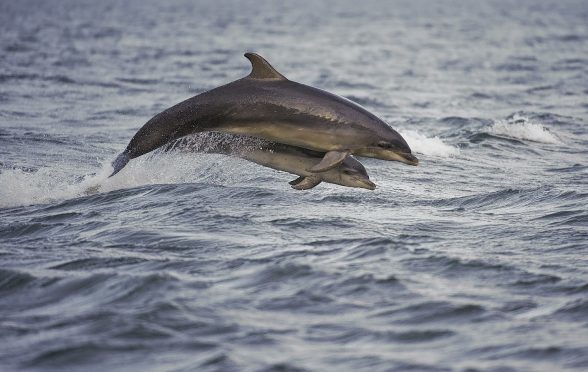Campaigners are calling for a ban on the use of electronic scarers to keep seals away from fish farms because of the harm they may be causing whales and dolphins.
The Acoustic Deterrent Devices (ADDs) are said to have a detrimental impact on cetaceans, including harbour porpoises and minke whales.
A new report by the Scottish Association of Marine Science (SAMS) examining “low frequency” ADDs is due be published via the Scottish Aquaculture Research Forum (SARF) later this month.
In response to complaints that ADDs used on salmon farms are “recklessly disturbing” cetaceans and breaching the European Commission rules, a “new generation” of low-frequency cetacean-friendly models have been assessed.
In a report on the environmental impacts of salmon farming published in March, the Environment, Climate Change and Land Reform Committee recommended that “fish farms cannot use ADDs”.
And in April, the Hebridean Whale and Dolphin Trust’s written submission to the Scottish Parliament’s salmon farming inquiry cited the need for new research on the impact of ADDs on minke whales – even at low frequencies.
David Ainsley, who runs whale-watching tours in Argyll, believes there should be a “zero tolerance” approach to the dedvices.
He said: “Turning down the volume of ADDs will not solve the problem. Lower frequency ADDs may be less disturbing for porpoises but worse for dolphins and minke whales.
“The use of ADDs by salmon farms constitutes ‘reckless disturbance’ and is an offence under Scottish law. As with the shooting of seals there must be a zero tolerance to ADDs.
“All current ADDs including the so-called ‘cetacean friendly’ models emit very loud noises well above the reported thresholds for disturbance and hearing damage to cetaceans.”
Campaigner Don Staniford, Director of Scottish Salmon Watch, said a “common sense solution” would be to relocate salmon farms away from the Scottish coast into closed containment tanks on land.
